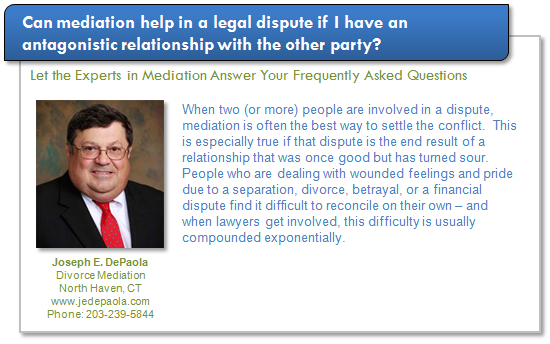Myth #1: One spouse can dominate the other.
Fact: An excellent mediator will make sure there is balance of power between the spouses and applies strategic techniques to resolve any imbalance. If one spouse shows continues dominating behavior, the mediator will temporarily halt the mediation instead of allowing it to continue. However, there is always a possibility that the mediator is not aware of any power imbalance that happens outside the mediation meetings.
Myth #2: There is prejudice for women in mediation.
Fact: Both spouses do not have any more disadvantages in mediation than in a divorce court. Moreover, a woman has the same right as with a man, to refuse an agreement that seems unreasonable to her or even stop the mediation.
Myth #3: Mediation is more bothersome than asking a lawyer to take care of the divorce.
Fact: Both litigation and mediation will require the divorcing spouses to do some amount of information gathering and decision making work but mediation provides a simpler method to the process. This approach is cheaper and less cumbersome than going to the court.
Myth #4: Mediation is for pushovers.
Fact: In mediation, the divorcing spouses negotiate for themselves and voice out what they want, instead of their lawyers. This develops their self-confidence and communication skills. They also learn to come out with decisions they are really satisfied with.
Myth #5: Mediation takes more time than divorce.
Fact: Most of the time, mediation always takes less time than taking the divorce in court. But if the spouses already prepared everything, litigation will almost always take as long or longer than mediation, even if there is an out-of-court settlement made by the lawyers.
Myth #6: There’s no place for lawyers in mediation.
Fact: Pro-mediation lawyers can help spouses by explaining their rights and options provided under the law, by guiding them in the negotiations, by constructing settlement ideas that satisfies both parties, and by putting together the paperwork once the agreement has been finalized.
Myth #7: The mediator determines what’s acceptable for the divorcing spouses.
Fact: A mediator does not have the authority to decide for the divorcing spouses. His responsibility is to facilitate the negotiation between the spouses and reach a fair agreement acceptable to both parties involved.





